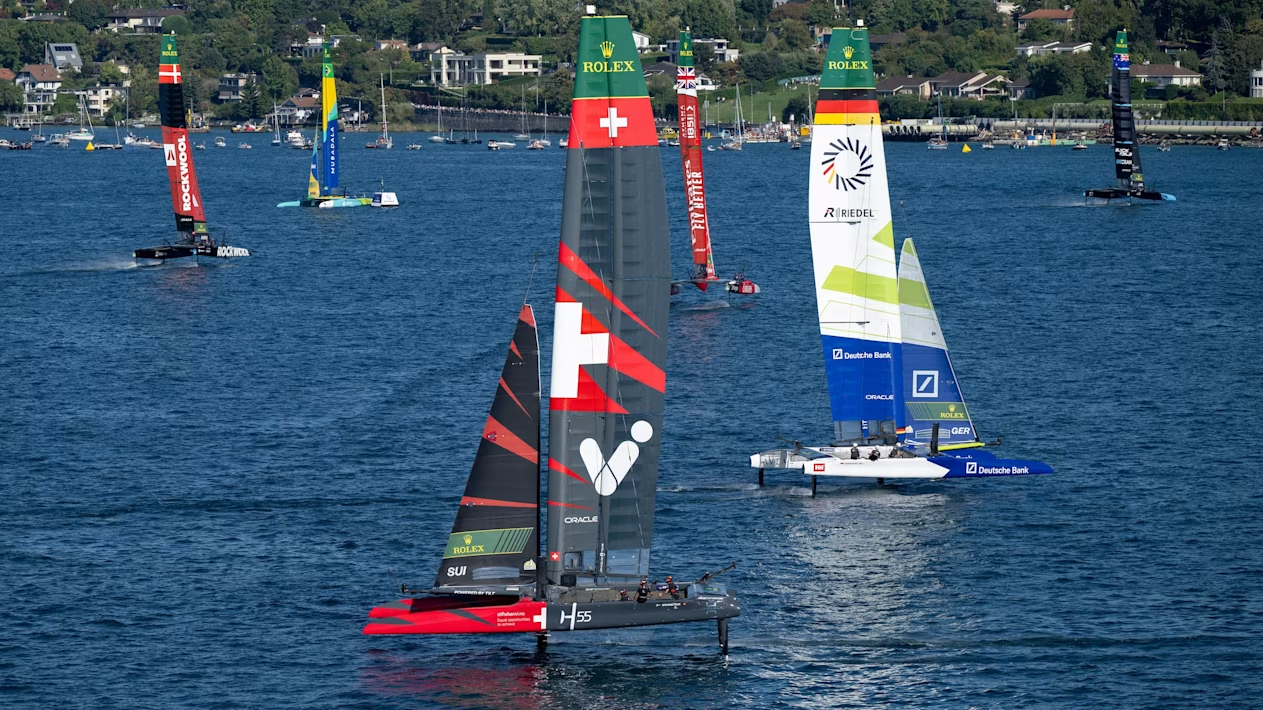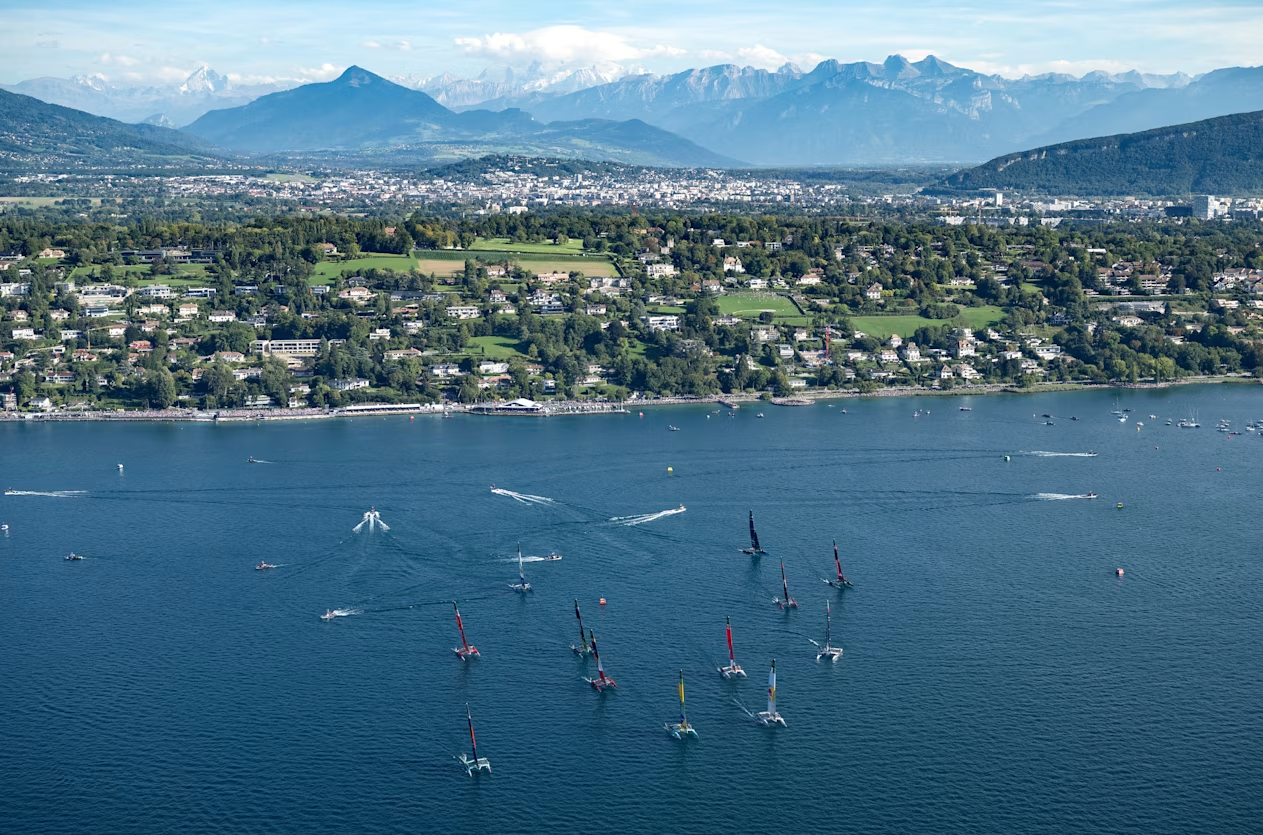
In sailing there is a simple but definitive maxim: “No wind, no race”. The Rolex Switzerland Sail Grand Prix in Geneva showed just how much the absence of wind can shape an event designed for extreme speed. The F50s, catamarans capable of surpassing 100 km/h, barely managed to lift off on Lake Geneva. The usual spectacle of foiling became a battle for survival, where precision and patience proved far more decisive than power.
The great winner of the weekend was Germany. Erik Heil’s crew, who had been showing steady progress in recent events, achieved their first ever SailGP victory in Geneva. In the final, sailed in the lightest of breezes, the Germans timed the start perfectly and read the tiny shifts better than anyone else. Australia got off the line with pace but soon fell back, while hosts Switzerland picked up a penalty at the start which compromised their race from the outset. Germany crossed the line almost 20 seconds ahead of Tom Slingsby’s Australians, with the Swiss third, completing an unprecedented podium.
The final was anything but spectacular. With barely 9 km/h of breeze, the boats only reached 30 km/h in short bursts, dropping quickly below 20 km/h. Instead of aggressive manoeuvres and long stretches of foiling, the key was to stay calm and cover the shortest distance with the fewest errors. Germany, first around the opening mark, held their lead until the end and wrote a historic page for their flag in SailGP.
Local protagonism came the day before, in the fifth fleet race. After several frustrating races and long postponements waiting for wind, that contest proved to be the most chaotic of the weekend: multiple protests, penalties for Italy, France, New Zealand and Australia, and constant decisions from the umpires, who were kept busy almost every minute. Amid the disorder, Spain managed to claim the win, but it was Switzerland who gained the most. Sébastien Schneiter’s crew, backed by the home crowd, secured a solid second place that delivered them a spot in the final.
Germany, third in that race, also confirmed their place, while Australia, despite a troubled and penalised race, managed to stay inside the cut. After five races the leaderboard set up a three-boat final with Switzerland on 31 points, Germany on 30 and Australia also on 30. Spain, though celebrating their individual victory, closed the weekend in fifth overall with 27 points.
For Spain, the balance of the event was mixed. The opening day proved disappointing, with poor starts and a lack of pace in the weakest conditions. Their triumph in the fifth race restored confidence and allowed them to finish fifth in Geneva, a result good enough to remain fourth in the championship standings with 70 points. Los Gallos will now head to the next event in Cádiz just three points away from the provisional podium that grants access to the Grand Final in Abu Dhabi.

Beyond the results, Geneva raises an unavoidable debate about the identity of the circuit. Conceived as a high-speed spectacle, the weekend on Lake Geneva offered more penalties than flights. For the teams, every manoeuvre became a risk in such light conditions; for the fans, the action fell far short of the usual adrenaline.
Even so, the Swiss stop will be remembered for two key reasons: Germany’s historic first victory, which confirms their growth into a serious contender, and Switzerland’s podium at home, achieved in front of their supporters despite the challenging conditions. The championship remains wide open and the excitement now moves south to Cádiz, where stronger winds should bring back the speed that defines SailGP.
Germany leave with their first victory and Switzerland celebrate a historic podium on home waters, but one question lingers: can SailGP afford to choose venues as unpredictable as Geneva, where the lack of wind threatens to dilute the very essence of the competition?
See you in Andalucía on 4 and 5 October for the next stage.



